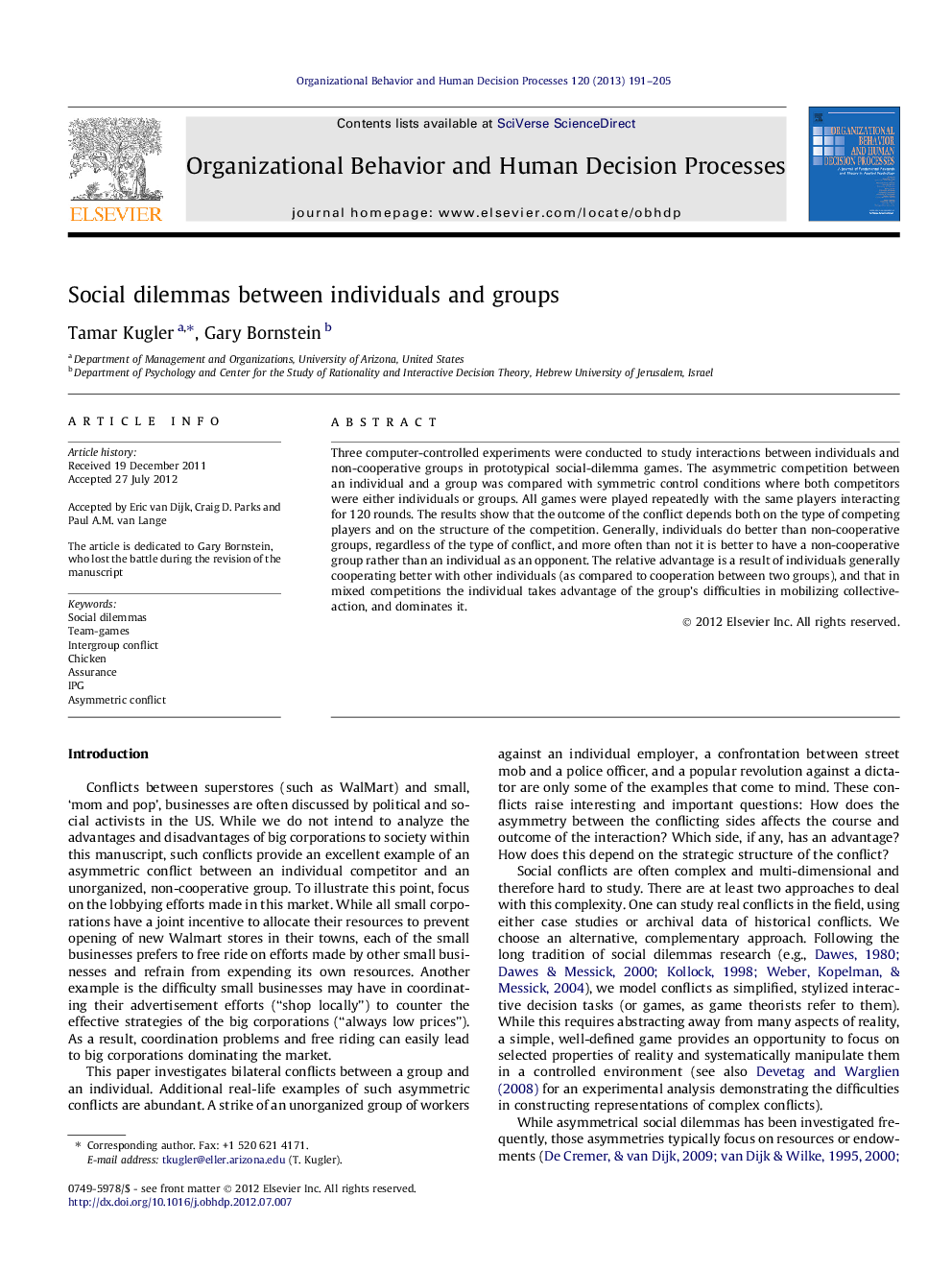| Article ID | Journal | Published Year | Pages | File Type |
|---|---|---|---|---|
| 888616 | Organizational Behavior and Human Decision Processes | 2013 | 15 Pages |
Three computer-controlled experiments were conducted to study interactions between individuals and non-cooperative groups in prototypical social-dilemma games. The asymmetric competition between an individual and a group was compared with symmetric control conditions where both competitors were either individuals or groups. All games were played repeatedly with the same players interacting for 120 rounds. The results show that the outcome of the conflict depends both on the type of competing players and on the structure of the competition. Generally, individuals do better than non-cooperative groups, regardless of the type of conflict, and more often than not it is better to have a non-cooperative group rather than an individual as an opponent. The relative advantage is a result of individuals generally cooperating better with other individuals (as compared to cooperation between two groups), and that in mixed competitions the individual takes advantage of the group’s difficulties in mobilizing collective-action, and dominates it.
► We study asymmetric social dilemmas between individuals and groups. ► We demonstrate that outcomes depend on player type and on conflict structure. ► We show that individuals outperform groups. ► Individuals’ advantage results from better cooperation with other individuals. ► Groups’ disadvantage results from difficulties in solving internal social dilemmas.
